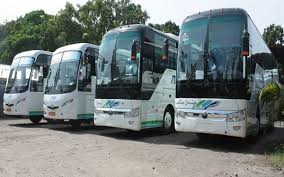How Ministry of Finance through Customs is frustrating use of Nigerian ports to import vehicles
More facts have emerged, showing that the greed of the Federal Ministry of Finance through the Nigerian Customs to reap more from car importers created the window for Nigerian ports to cede shipping hub to Cotonou ports in Benin Republic. The resultant effect therefore became subjecting Nigerian ports to being unattractive and uncompetitive.
Otherwise, the major factor frustrating use of Nigerian ports to import cars by Nigerians is duty hikes by Customs which stemmed from previous administration and further aggravated by the current.
Prior to 2015, Customs consider vehicle sizes year of manufacture in determining tariff to be paid. The idea was to charge incrementally according to models and time of manufacture, meaning that latest designs cost more than old models.
But the tariff regime from the 2014/15 Automotive Policy shut the customs duties to the roof top thereby leading to the dissertation of Nigerian ports and growth of clearing traffic at neighbouring Cotonou port in Benin Republic.
The 2015 Customs tariff regime reversed considerations in duties charged from size and year of manufacture to 35 per cent of the overall cost of vehicles.
As if the 35 per cent of total cost of the vehicle was not enough, another 35 per cent levy was charged for both new and old cars, thus raising duties payable to 70 per cent, meaning that if a car is bought abroad for N3,000,000.00, duties payable on it will be N2.1m.
Investigations show that this scenario was the main reason that is driving the traffic of Nigerian car importers to neighbouring countries.









